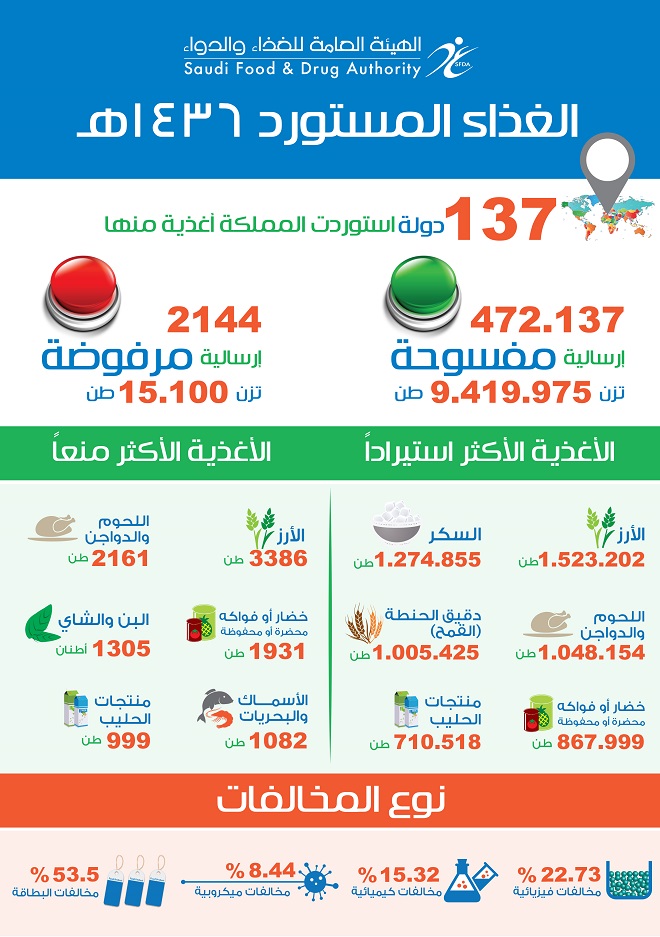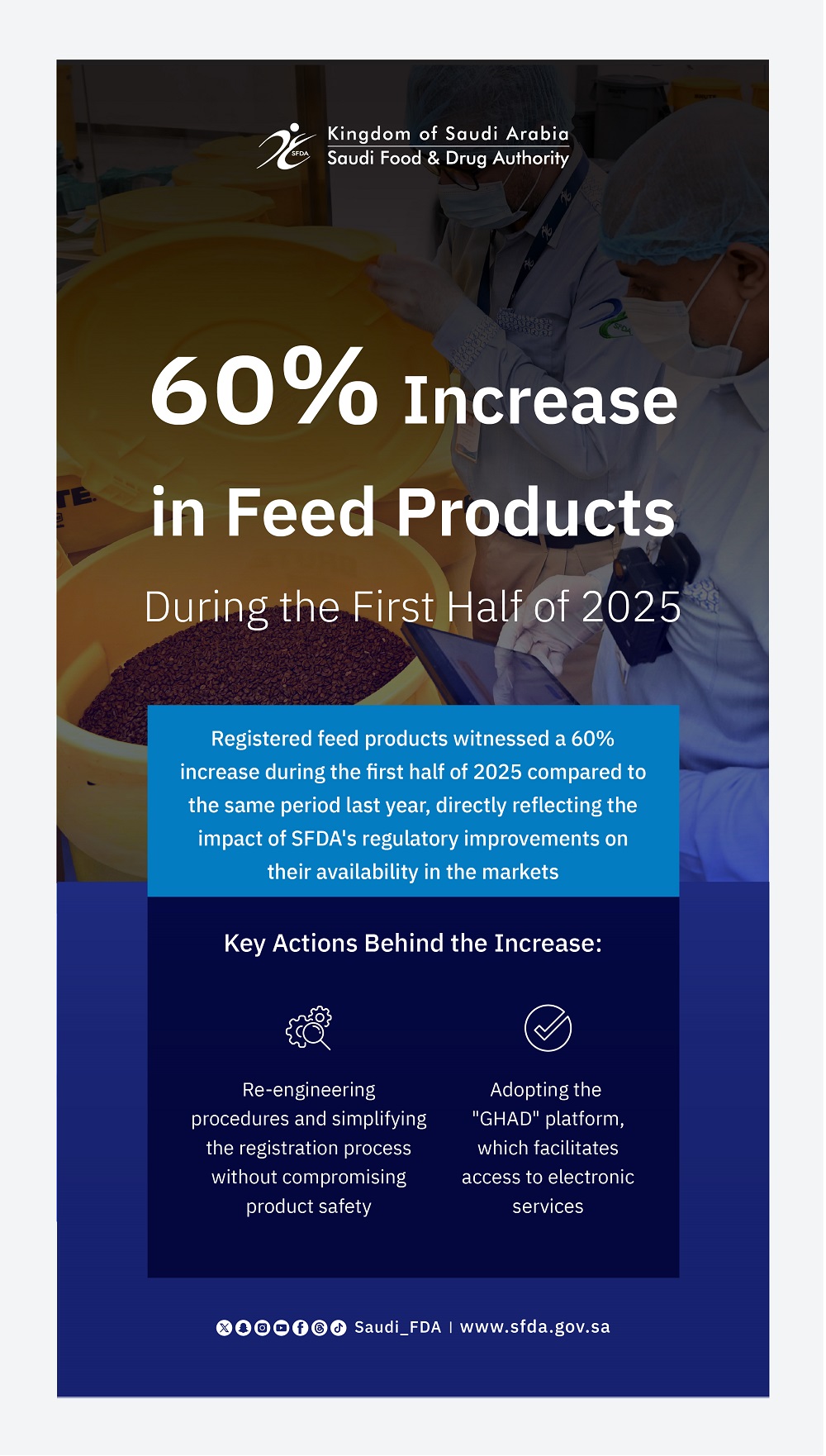SFDA Released 9.4 million tons and Rejected 15k tons of Foods in one year
2015-11-28
The weight of released foods by SFDA during last year reached Nine Million Four Hundred Nineteen Thousand Nine Hundred Seventy Five tons ( 9,419,975 ton) in 472,137 shipments, while it rejected food shipments weighing Fifteen Thousand One Hundred tons (15,100 ton) representing 0.16% of the released shipments.
The Kingdom has imported food from 137 countries last year, where rice, sugar, meat, poultry and wheat flour presented half of the weight of the imported food.
Rice was on top of the imported food
The weight of the rice released by SFDA last year reached (1523202 ton), followed by sugar(1274855 ton), then meat & poultry (1048154 ton), wheat flour(1005425ton), vegetables & processed or preserved fruit(867,999 ton),, milk products (710518 ton), other food stuff (596462 ton), cooking oil and fats(544,320 ton), beverages(543,590 ton), pasta (285,383 ton), sugar products containing cocoa(168,907 ton), fish & sea food (166,698 ton), whole grains (165,032 ton), coffee or tea (118,249 ton), shelled fruit (105,088 ton), salt (102,277ton), processed meat (69,494 ton), coffee ot tea concentrates (62,411on), food processing stuff (38,521 ton), plants concentrates (23,379 ton) and modified starch (13 ton).
2K tons of violating Meat
The violating foods rejected by SFDA included rice (3,386 ton), followed by meat & poultry (2,161 ton), vegetables & processed or preserved fruit (1,931 ton), coffee & tea (1,305 ton), fish & sea food (1,082 ton), milk products (999 ton), pasta (700 ton), Sugar (623 ton), shelled fruit (604 ton), beverages(561 ton), coffee or tea concentrates (512 ton), cooking oil and fats(244 ton), wheat flour(197 ton), processed meat (188 ton), whole grains (176 ton), sugar products containing cocoa(165 ton), plants concentrates & juice (98 ton), salt (84 ton), other food stuff (34 ton), modified starch (18 ton), food processing stuff (34 ton),
Labeling violations were found to represent the largest percentage of rejected foods (53.5%) of all rejected shipments, followed by physical violations (22.73%), then chemicasl violations (15.32%) and microbial violations (8.44%)
The enhancement of SFDA’s processes has much contributed to facilitation of the procedures and increasing the efficiency of control of imported food at the points of entry, particularly with the enforcement of the electronic clearance system in 1435H at all points of entry, where clearance of all shipments was only allowed through the electronic systems. This made it easy to obtain information about the products, their importers and tracking of same in case of recalling or consumer safety issues. The electronic Black Listing system, launched in 1435H also plays a critical role in tightening control on imported food.
SFDA’s processes development was recently crowned by the approval of the Council of Ministers’ of Food Regulations that authorizes SFDA to issue food standard specifications and technical rules and link release of imported food to SFDA’s approval according to its approved conditions, requirements and procedures.
SFDA’s imported food inspectors audit and verify food certifications and documents attached to the shipments to confirm their completeness (documents verification) and check all shipment items against such documents (to check product I.D), conduct field visits to containers for physical check to confirm compliance of all food items with the technical rules and standard specifications in addition to referral of suspected items to the laboratory for analysis.
Shipments may be rejected at any stage of the inspection process. Permission will be granted to release all items that are free of any comments or deviations and will be referred to customs on the same day, for clearance.






